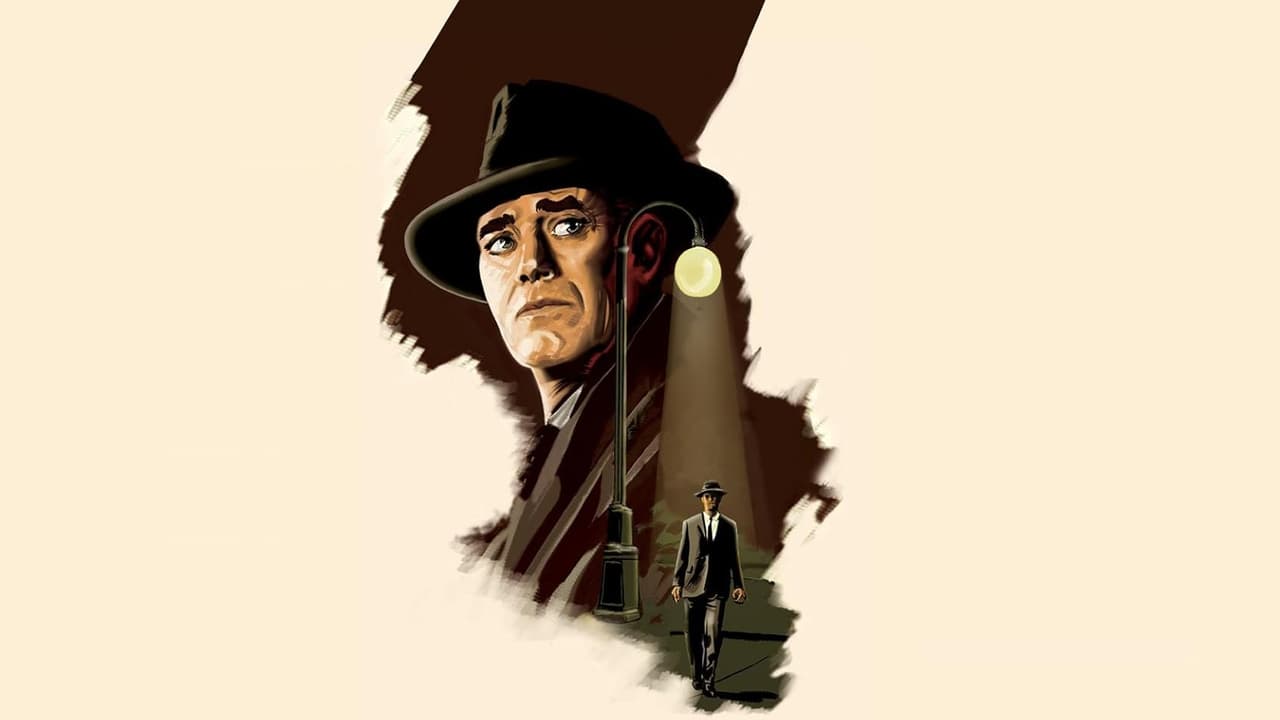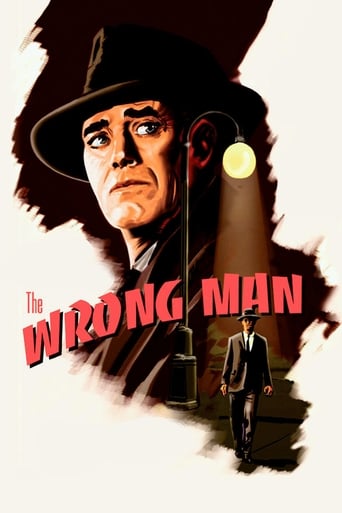

As the detectives tell wrongly accused bass player Manny Balestero (Henry Fonda) (picked up for holding up an insurance office at gunpoint) that if he's innocent he has nothing to fear, you realize that once placed in the criminal justice system, he has everything to fear, especially the prospect of losing his wife and family who adore him. Unlike Marnie (Tippie Hedrin) or Marian Crane (Janet Leigh's part in Psycho), who actually did take the money, Fonda is so completely innocent that that aspect is what provides this film with its most compelling force. How could such a decent guy be thrown into such an impersonal and seemingly coldhearted system, as he's arrested, fingerprinted, jailed, transported in a paddy wagon with other felons to his arraignment, and a lot more, all done during a bleak looking New York winter in vintage 1950s black and white, set to a Bernard Hermann score that fits perfectly the mood. Not your typical Hitchcock film, but an excellent role for Henry Fonda.
... View MoreA common theme in Alfred Hitchcock's movies is a man accused of a crime that he didn't commit (Strangers on a Train, North by Northwest)*. "The Wrong Man" makes it clear that this is the topic. Henry Fonda plays a musician incorrectly identified as the man who held up an insurance office. Many shots of him feature either him alone - in the jail cell - or surrounded by people whose faces you can't totally see - in the car - to emphasize how his world has caved in. As much as the movie focuses on the protagonist, it also focuses on his wife (Vera Miles) and how she slowly descends into clinical depression.It only adds to the suspense that this movie is based on a true story, the only time that the Sultan of Suspense used a true story as the basis for one of his movies. Like his more famous works, it goes to show that few people knew how to tell a story like Alfred Hitchcock did. It's not his best movie, but I recommend it.*Conversely, another one of Hitch's themes was the guilty woman (Psycho, The Birds).
... View MoreAlfred Hitchcock directed 1950s film noir thriller based on actual events rather than the escapism thrillers so often associated with Hitchcock. The film is one of his last shot in black and white and uses actual New York City location photography. The screenplay concerns a jazz musician Manny Balestero (Henry Fonda) wrongly accused of holding up an insurance office. The film is almost like a documentary due to its true events. Fonda plays Balestero with a bewildered look throughout. I mean his world is literally falling down around him. A musician, happily married with two young sons.. The procedure of Balestero's ridiculous arrest at the police station, indictment and trial are excellently conveyed by Hitchcock. The best acting in the film probably goes to Vera Miles as Balestero's psychologically effected wife Rose who actually suffers a breakdown and ends up being treated for two years in a mental institution. Hitchcock conveys the indignity and shock of the whole process. The black and white images probably adding to the gloom. Little known and underrated Hitchcock film if I am being honest. I found it as entertaining as his more well known thrillers I have watched. The cameo that Hitchcock usually makes in his films is sensibly omitted as the great director delivers a prologue at the beginning explaining the outline of the true life events.
... View MoreSurely the identity-parade scenes were flawed by virtue of the fact that the witnesses would look at the men independently, not together. Otherwise one could influence the other on their choice of person.I think that the real robber did have a remarkable similarity to Fonda and it was brilliant the way Hitchcock superimposed the two faces.Vera Miles' gradual descent towards mental breakdown is brilliantly acted as is Fonda's continual look of astonishment at his wrongful arrest and process by the police. Beautifully filmed in black and white, it is a classic piece of film noir and much under-rated. No histrionics, no violence, just a rattling good story of what could happen to an innocent man.
... View More